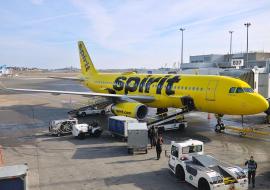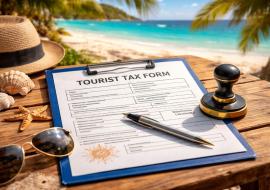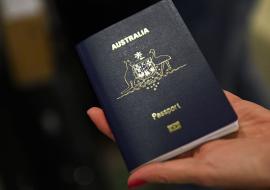U.S. Virgin Islands, Airbnb Ink Tax Pact

The United States Virgin Islands announced an agreement under which home-stay provider Airbnb will pay the territory's 12.5 percent hotel room occupancy tax on behalf of the service’s hosts for collection by the Virgin Islands Bureau of Internal Revenue (BIR).
While Airbnb has reached agreements with several destinations as well as the Caribbean Tourism Organization (CTO) this past year, Airbnb's pact with the US Virgin Islands is the first to specifically address tax revenue.
“Today's announcement spearheads [Airbnb’s] efforts in the Caribbean to collect and remit lodging taxes on behalf of hosts, allowing hosts to comply and give back to their communities,” said company officials in a statement.
The agreement will help the territory’s overall tourism industry by bringing in new players, said Kenneth E. Mapp, the US Virgin Islands’ governor.
"This is good for our Government because it streamlines the collection process and enables more of our residents to participate in the visitor industry,” said Mapp. “Our hospitality sector will also greatly benefit from the promotional reach of this multibillion-dollar organization.”
"This agreement brings to the table a well-resourced partner to help with our efforts to attract people to our islands," added Beverly Nicholson-Doty, the US Virgin Islands’ tourism commissioner.
Airbnb has about 2,000 active listings across the US Virgin Islands, and the average Airbnb hosts in the territory earns $7,700 annually, said Shawn Sullivan, Airbnb’s public policy manager for the Caribbean and Central America.
The agreement follows Airbnb pacts reached this past year with governments in Aruba, Curacao and Jamaica. The Caribbean Tourism Organization (CTO) inked an agreement with Airbnb in February to “formulate sharing economy policy principles and recommendations for Caribbean governments and other stakeholders.”
Under the partnership, the organizations “share data and studies with policymakers about the positive impact of the sharing economy in the region; identify ways to make it more inclusive; broaden tourism benefits to non-traditional actors and attract new stakeholders,” said CTO officials. Airbnb also provides CTO with “economic analysis of Airbnb’s impact on local economies.”
“As local hosts bring more tourism to the region, visitors get to know the country from an organic and more authentic point of view, spending in local businesses and services, as well as encouraging others to visit the islands as a result of their positive experience," Sullivan said.
Meanwhile, as governments are forging pacts to ensure the companies provide tax revenue and meet regulations required of mainstream hoteliers, Caribbean hoteliers are seeking methods to manage home stay providers’ entry into their once-exclusive territory.
“We need to level the playing field,” said Frank Comito, CEO and director general of the Caribbean Hotel & Tourism Association (CHTA), at CTO conference in 2016. “We want to work [home stay providers] to promote common sense laws and regulations.”
Source: Travel Pulse














